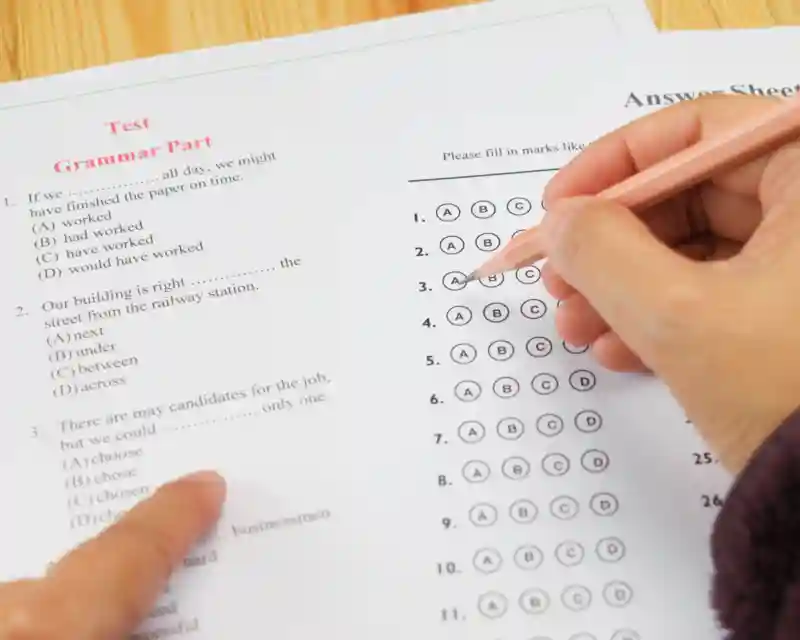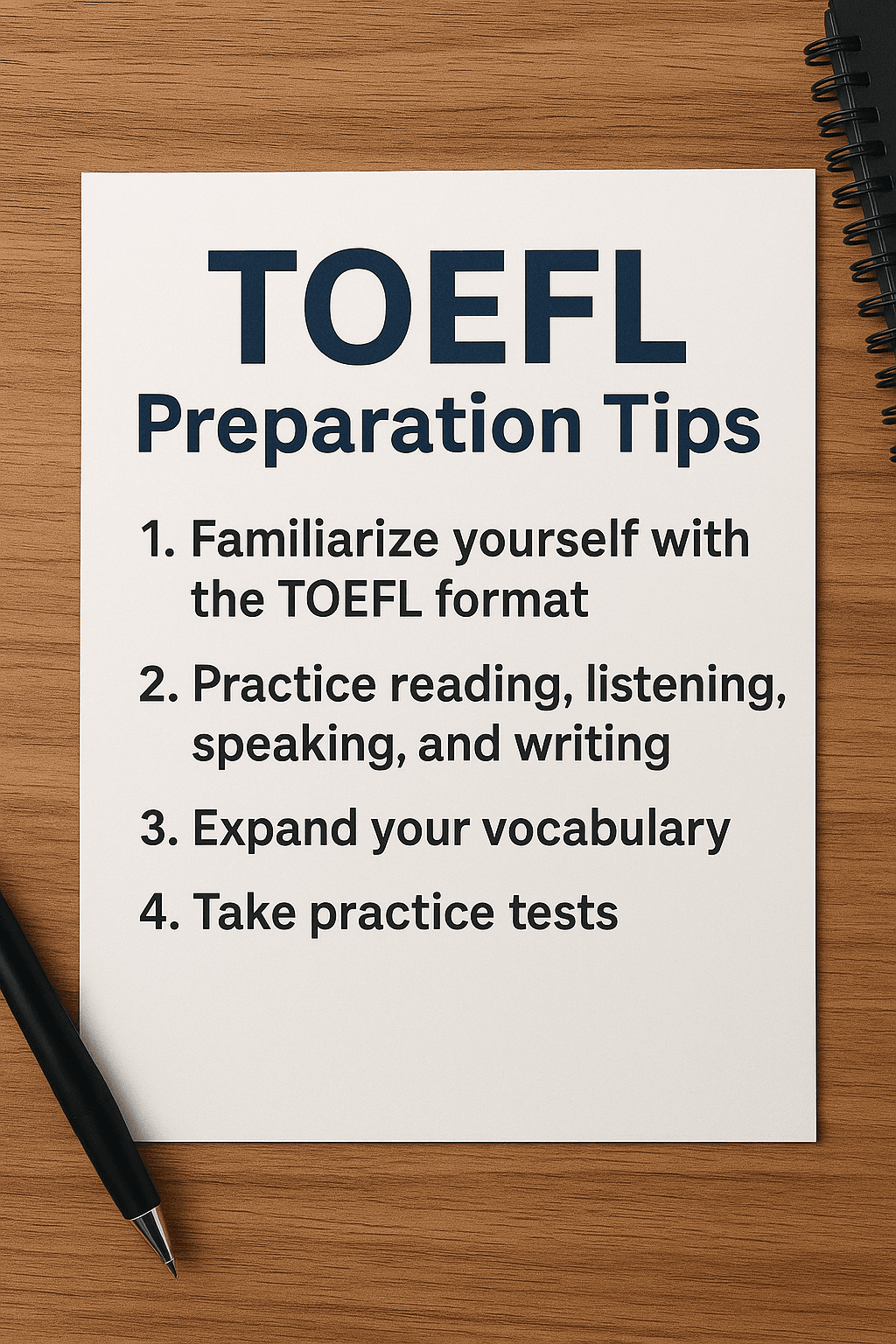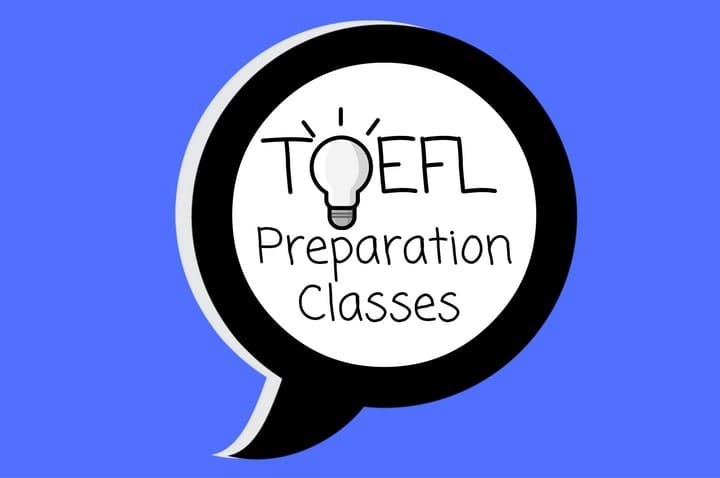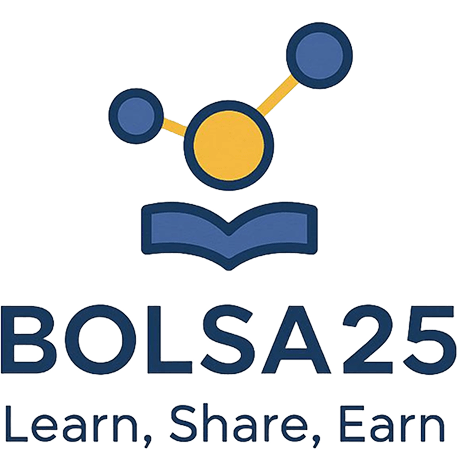Welcome to the ultimate TOEFL preparation guide from your trusted partners at bolsa25. The TOEFL iBT test is a critical step for anyone aiming to study or work in an English-speaking environment. It’s more than just an exam; it’s a gateway to achieving your global ambitions. However, the path to a high score can seem daunting. Many students wonder, “How do I even begin?” That’s why we’ve created this comprehensive guide. At bolsa25, we specialize in transforming language learners into confident English speakers, and our unique approach is perfectly suited for mastering this important test. This article will walk you through everything you need to know, from understanding the test structure to implementing advanced strategies for each section. We will cover how to create an effective study plan, set achievable goals, and avoid common pitfalls. Let’s embark on this journey of TOEFL preparation together and unlock your full potential.
Importance of TOEFL for Academic and Professional Goals
The Test of English as a Foreign Language (TOEFL) is one of the most widely recognized English proficiency exams in the world. A strong TOEFL score is often a non-negotiable requirement for admission into universities and colleges in English-speaking countries, particularly in the United States and Canada. According to ETS, the organization that administers the test, TOEFL scores are accepted by thousands of institutions globally. For undergraduate programs, many universities in the USA require a minimum score between 6.0 and 6.5 on the IELTS, which corresponds to a specific range on the TOEFL scale, often around 60-78 iBT. For postgraduate programs, the bar is even higher, with many institutions asking for scores of 6.5 to 7.5 in IELTS, translating to a TOEFL iBT score of approximately 79-101.
Beyond academia, a good TOEFL score can significantly enhance your professional prospects. Many professional licensing bodies, government agencies, and multinational corporations use TOEFL scores to verify the English language competency of non-native speakers. Whether you are a doctor, nurse, or engineer seeking professional registration, or an employee aiming for a role in an international company, demonstrating your language skills through a standardized test like TOEFL is crucial. It proves that you can communicate effectively in workplace and social situations, understand complex instructions, and contribute meaningfully to discussions. Therefore, investing time and effort into thorough TOEFL preparation is a direct investment in your future academic and career success.

TOEFL Preparation Strategies
A successful TOEFL journey begins with a solid strategy. Simply diving into practice tests without a plan can lead to burnout and frustration. At bolsa25, we believe in a structured, methodical approach to learning. This involves creating a personalized study schedule, setting clear and realistic goals, and building a robust foundation in the English language. This section will guide you on how to do TOEFL preparation effectively.
Creating a study schedule
Consistency is the cornerstone of effective learning. A well-structured study schedule is your roadmap to success, breaking down the monumental task of TOEFL preparation into manageable daily and weekly tasks. The amount of time you need can vary. Studies have shown that it can take around 200 guided learning hours to improve by one IELTS band, which gives an idea of the commitment required. For some, a dedicated one-month study plan might be sufficient, especially if they already have a strong English base. For others, a two-month or even a six-month plan might be more realistic to build both foundational skills and test-specific strategies.
Your schedule should allocate specific time slots for each of the four TOEFL sections: Reading, Listening, Speaking, and Writing. It’s also crucial to schedule time for vocabulary building, grammar review, and full-length mock tests. At bolsa25, our courses are designed around a structured curriculum that ensures balanced development across all skills. Whether you join our intensive programs or a more paced course, we help you create and stick to a schedule that fits your life and learning style, making your TOEFL preparation online both efficient and effective.
Setting realistic goals
Setting clear, achievable goals is essential for maintaining motivation throughout your preparation. Instead of a vague goal like “get a high score,” use the SMART (Specific, Measurable, Achievable, Relevant, Time-bound) framework. A better goal would be: “I want to increase my TOEFL score from 80 to 95 in two months by focusing on improving my Writing score from 20 to 24.”
To set realistic goals, you first need to understand your current level. Taking a full-length diagnostic mock test is the best way to identify your strengths and weaknesses. This baseline assessment will show you which sections require the most attention. For instance, if you excel in Reading but struggle with Speaking, you know where to focus your efforts. At bolsa25, we emphasize this diagnostic approach. Our instructors help you analyze your initial performance and set personalized, realistic targets, ensuring your study plan is tailored to your specific needs. This targeted approach is a key component of the best TOEFL preparation.
Building strong English foundations
While test-taking strategies are important, they are no substitute for a solid foundation in English. The TOEFL is designed to assess your overall language proficiency, not just your ability to memorize tricks. Before diving deep into test-specific tactics, dedicate time to strengthening your core English skills.
- Vocabulary: Expand your academic vocabulary. Don’t just memorize word lists; learn words in context. Read academic articles, journals, and reputable news sources. Create flashcards and use them regularly.
- Grammar: A strong command of grammar is crucial for both the Writing and Speaking sections. Review complex sentence structures, verb tenses, and punctuation. Practice is key to making these structures feel natural.
- Active Engagement: Surround yourself with English. Watch movies and lectures without subtitles, listen to podcasts on academic topics, and read books and articles that challenge you. The more you immerse yourself in the language, the more intuitive it will become.
At bolsa25, our teaching philosophy is built on this principle. Our conversation-focused classes and real-life experience tasks are designed to build your overall fluency and confidence, which naturally translates to a better performance on test day. We believe that mastering the language is the most sustainable path to mastering the test.
Section-by-Section Preparation Tips
The TOEFL iBT is divided into four sections, each designed to test a specific language skill. Acing the exam requires a tailored approach for each part. Here at bolsa25, our expert instructors have compiled the most effective strategies to help you navigate the Reading, Listening, Speaking, and Writing sections with confidence. This is your detailed guide on how to toefl preparation for each module.
Reading: skimming, scanning, vocabulary building
The TOEFL Reading section assesses your ability to understand academic texts. You will typically read 2 passages and answer 10 questions per passage, all within a 35-minute timeframe. The key challenges are the dense academic content and the strict time limit.
Key Strategies:
- Master Skimming and Scanning: You don’t have time to read every word. Skimming involves quickly reading to grasp the main idea of a passage. Focus on the title, introduction, the first sentence of each body paragraph, and the conclusion. Scanning is used to find specific information, like names, dates, or keywords from the question, without reading the entire text. Practice these skills to navigate passages efficiently.
- Understand Question Types: The TOEFL Reading section has about 10 different question types, including Factual Information, Negative Factual Information, Inference, Vocabulary, and Prose Summary. Memorizing the format of each question type helps you know what to look for. For example, for vocabulary questions, you need to find the word closest in meaning in the context of the passage.
- Build Academic Vocabulary: The passages are filled with academic language. Instead of just memorizing lists, learn words in context. Read articles from academic journals, reputable news sites, and textbooks. At bolsa25, we integrate vocabulary building into our lessons, ensuring you learn words and their usage in real-world academic contexts.
- Active Reading: Don’t just passively read. Be an active reader by taking brief notes on the main idea of each paragraph. This creates a mental map of the passage, making it easier to locate answers later. Identify keywords in the questions and then scan the passage for them or their synonyms.
Effective TOEFL preparation for the Reading section is about strategy, not just speed. By practicing these techniques, you can approach the texts with confidence and precision.

Listening: note-taking, accent practice
The TOEFL Listening section evaluates your ability to understand spoken English in academic and campus-life contexts. It typically consists of 2-3 conversations and 3-4 lectures, with a total of 28 questions to be answered in about 36 minutes. You only hear each recording once, which makes active listening and effective note-taking absolutely critical.
Key Strategies:
- Develop a Note-Taking System: You cannot remember everything, so taking good notes is essential. Don’t try to write down every word. Focus on main ideas, key details, relationships between ideas (e.g., cause-effect, compare-contrast), and the speaker’s attitude or opinion. Use abbreviations, symbols, and a clear layout to keep your notes organized and easy to read.
- Listen for Cues and Structure: Lectures are usually well-organized. Listen for transition words and phrases (e.g., “First,” “In contrast,” “To sum up”) that signal the structure of the talk. In conversations, pay attention to the speakers’ tone of voice and intonation, as this can reveal their attitude or purpose, which is often tested.
- Practice with Diverse Accents: The TOEFL uses a variety of accents, primarily North American, but also British, Australian, or New Zealander. To prepare, expose yourself to different accents by listening to podcasts, news broadcasts (like BBC), and academic lectures (like TED Talks) from various English-speaking regions.
- Focus on Paraphrasing: The correct answer choices in Listening questions are often paraphrases of what was said in the recording, not direct quotes. As you practice, focus on understanding the meaning of what you hear, rather than just catching specific words. This is a core skill we develop in bolsa25’s conversation-focused classes.
Speaking: fluency, pronunciation, time management
The TOEFL Speaking section is often the most intimidating for test-takers. It measures your ability to speak English effectively in academic settings. The section consists of four tasks: one Independent task where you express your own opinion, and three Integrated tasks where you must speak in response to something you read and/or heard. The entire section takes about 16 minutes.
Key Strategies:
- Use Templates for Structure: For each of the four speaking tasks, having a clear structure is key. Templates can help you organize your thoughts quickly and ensure you cover all parts of the prompt. For example, for the Independent task, a good structure is: State your opinion -> Provide Reason 1 with details/examples -> Provide Reason 2 with details/examples.
- Focus on Fluency and Coherence: Fluency is not about speaking extremely fast; it’s about speaking at a natural pace with minimal hesitation. Coherence means your ideas are logical and easy to follow. Practice using transition words (e.g., “Furthermore,” “For instance,” “On the other hand”) to connect your ideas smoothly. At bolsa25, our small-group, conversation-focused learning provides the perfect environment to build this kind of natural fluency.
- Work on Pronunciation and Intonation: Clear pronunciation is vital. You don’t need a perfect native accent, but your speech must be easily understandable. Practice difficult sounds, and pay attention to word stress and intonation patterns. Recording yourself and comparing it to native speakers can be a very effective practice method.
- Manage Your Time: You have very limited preparation and speaking time for each task (e.g., 15 seconds to prepare and 45 seconds to speak for the Independent task). Practice with a timer to get used to these constraints. Learn to formulate your main points quickly during the prep time and deliver a complete response within the speaking time.
Writing: essay structure, grammar accuracy, practice tests
The TOEFL Writing section assesses your ability to write clear, well-organized, and grammatically correct academic English. It consists of two tasks: an Integrated Writing task and a “Writing for an Academic Discussion” task. The total time for the section is 29 minutes.
Key Strategies:
- Master the Essay Structures: Both writing tasks have specific structural requirements.
- Integrated Task (20 minutes): You will read a passage, listen to a lecture that challenges the passage, and then write an essay summarizing the lecture and explaining how it relates to the reading. A good structure is a 4-paragraph essay: an introduction, and three body paragraphs, each focusing on one point of contrast between the reading and the lecture. Aim for 280-300 words.
- Academic Discussion Task (10 minutes): You will read a professor’s question and two student responses in an online class discussion. You must then write your own contribution to the discussion. Your response should add to the conversation with new ideas or perspectives, not just repeat what others have said. Aim for at least 100 words.
- Paraphrase, Don’t Copy: For the Integrated task, you must explain the points from the reading and lecture in your own words. Directly copying sentences will lower your score. Practice paraphrasing ideas to demonstrate your vocabulary and command of sentence structure.
- Focus on Grammar and Vocabulary: Use a variety of complex sentence structures and appropriate academic vocabulary. Leave a few minutes at the end of each task to proofread your essays for grammatical errors, spelling mistakes, and typos. Accuracy is a key scoring criterion.
- Practice with Feedback: The best way to improve your writing is to practice and get feedback from an experienced instructor. At bolsa25, our teachers provide personalized feedback on your practice essays, helping you understand your weaknesses and how to improve them. This is a crucial part of any serious TOEFL preparation plan.

Importance of timed practice
Understanding all the strategies for the TOEFL is one thing, but executing them under pressure is another. The TOEFL is a strictly timed exam, and many test-takers find time management to be one of their biggest challenges. This is why incorporating timed practice into your TOEFL preparation is not just recommended—it’s essential. Simulating real test conditions helps you build the stamina, speed, and mental focus required to perform at your best on test day.
When you practice without a timer, you might be able to find all the correct answers in the Reading section or write a perfect essay, but this doesn’t reflect the reality of the exam. Timed practice forces you to make quick decisions, apply strategies efficiently, and manage your anxiety. Start by timing individual questions to get a feel for the pace. For example, aim to answer TOEFL Reading questions in about 90 seconds on average. As you get more comfortable, progress to completing full sections within the allotted time (e.g., a 35-minute Reading section or a 29-minute Writing section). The ultimate goal is to take several full-length practice tests under strict, uninterrupted exam conditions. This will not only highlight your remaining weaknesses but also build the confidence that you can complete the test within the given timeframe. At bolsa25, our curriculum includes timed drills and full mock tests to ensure our students are not just knowledgeable, but also test-ready.
Common Mistakes to Avoid
On the path to a high TOEFL score, knowing what not to do is just as important as knowing what to do. Many test-takers, despite diligent study, fall into common traps that can significantly lower their scores. Being aware of these pitfalls is a critical part of your TOEFL preparation. Here are some of the most frequent mistakes to avoid:
- Poor Time Management: Spending too much time on a single difficult question is a classic error. Remember that every question within a section is worth the same number of points. If you’re stuck, make an educated guess and move on. You can’t afford to sacrifice several easier questions for one hard one.
- Not Reading Instructions Carefully: This seems obvious, but in the heat of the exam, it’s easy to misread instructions. For example, a Reading question might ask for what is “NOT mentioned” in the passage, or a Writing task might have multiple parts to address. Always take a moment to fully understand what is being asked of you.
- Ignoring the Integrated Nature of Tasks: In the Integrated Speaking and Writing tasks, it’s a mistake to focus only on the listening or the reading. The goal is to synthesize information from both sources. Your response must clearly show the connection between the points made in the reading and the lecture.
- Memorizing Answers for Speaking: While it’s good to use templates for structure, delivering a memorized, robotic speech will hurt your score. Examiners are trained to spot this and will penalize you for a lack of spontaneity and natural language use. Focus on being fluent and coherent, not on reciting a script.
- Neglecting to Proofread Writing: Simple spelling and grammar mistakes can drag down your Writing score. Always leave at least 2-3 minutes at the end of each writing task to review your work. A quick proofread can help you catch and fix errors that you made in the rush of writing.
- Panicking When You Miss Something: In the Listening section, you will only hear the audio once. If you miss an answer, do not panic or dwell on it. This will only cause you to lose focus and miss the next few questions as well. Simply move on to the next question and stay focused on the audio.
Avoiding these common errors requires practice and mindfulness. Through the guided practice and expert feedback provided in bolsa25 courses, we help you build the habits needed to navigate the test confidently and avoid these score-lowering traps.
In Conclusion
Embarking on your TOEFL preparation journey is a significant commitment, but it is a rewarding one that opens doors to global opportunities. As we’ve explored in this guide, success on the TOEFL iBT is not about finding shortcuts, but about building a solid strategy. It requires a combination of strengthening your core English skills, understanding the intricacies of the test format, and practicing consistently under timed conditions. From creating a realistic study schedule to mastering section-specific strategies and avoiding common mistakes, every step you take is a move toward your goal.
At bolsa25, we are dedicated to guiding you through this process. Our unique approach, which emphasizes small-group learning, conversation-focused practice, and personalized support, is designed to build not just your test scores, but your overall confidence and fluency in English. We believe that the best TOEFL preparation is one that is structured, supportive, and tailored to your individual needs. We hope this guide has provided you with a clear roadmap. Now, it’s time to put these strategies into action. With dedication and the right support, you can achieve the TOEFL score you need to make your academic and professional dreams a reality.
FAQs
The best way to start your TOEFL preparation is with a 4-step plan. First, take a full-length diagnostic practice test to determine your current English level and identify your strengths and weaknesses. Second, based on your results, create a structured study plan that allocates time for improving your overall English foundation and practicing for each of the four test sections. Third, familiarize yourself with the TOEFL test format, question types, and scoring criteria. Finally, engage in consistent, timed practice to build stamina and test-taking skills. At bolsa25, we guide students through this entire process, making it the ideal starting point for your preparation.
Neither test is definitively harder than the other; they are simply different. The difficulty often depends on an individual’s skills and learning style. The TOEFL is a single, computer-based test with 100% academic content. Its Speaking section involves speaking into a microphone, which some find less stressful than the face-to-face interview in the IELTS test. The IELTS test has two versions and includes a wider variety of question types. The IELTS Writing Task 1 for the Academic test involves describing a chart or diagram, whereas the TOEFL Integrated Writing task requires you to summarize and compare a reading passage and a lecture. The best way to decide is to review the format of both tests and see which one aligns better with your strengths.
While there is no exact official conversion, ETS and the IELTS partners have published comparison tables based on research. According to these tables, an IELTS overall band score of 7.5 is generally considered equivalent to a TOEFL iBT total score in the range of 102 to 109. It’s important to note that a specific IELTS band score can correspond to a range of TOEFL scores. For example, an IELTS 7.0 is comparable to a TOEFL score of 94-101. Always check the specific requirements of the institution you are applying to, as they may have their own standards for equivalency.
Yes, you can absolutely prepare for the TOEFL at home. This is often referred to as self-study. There is a wealth of resources available for TOEFL preparation online, including official practice tests from ETS, study guides, books, and video lessons. Effective home preparation requires discipline, a structured study plan, and the ability to accurately assess your own progress. However, many students find that they benefit from the structured guidance, expert feedback , and motivation that a formal course provides. A hybrid approach, combining self-study with an online course like those offered at bolsa25, can offer the best of both worlds: flexibility and expert support.
Whether two months is enough time for TOEFL preparation depends heavily on your starting English proficiency and your target score. If your English level is already strong and you only need to improve by a small margin, two months of focused study can be sufficient to familiarize yourself with the test format and strategies. However, if you need to make a significant improvement , you will likely need more time. Research suggests it can take approximately 200 hours of guided learning to improve by one IELTS band. Therefore, for a significant score increase, a more realistic timeframe would be 3-6 months.How do I start preparing for TOEFL?
Is TOEFL harder than IELTS?
How much is 7.5 IELTS in TOEFL?
Can I prepare for TOEFL at home?
Is 2 months enough for TOEFL?

